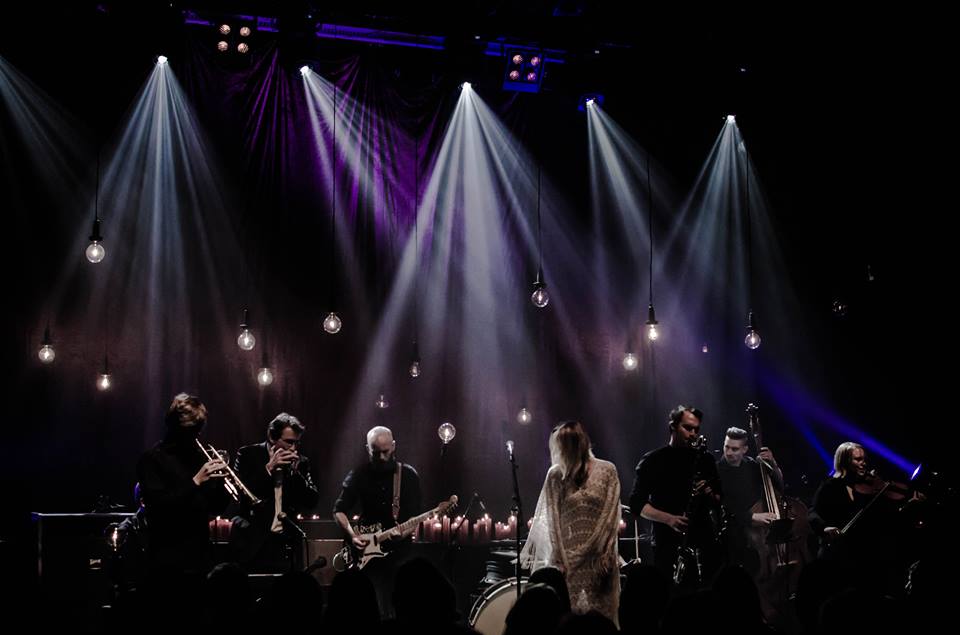Yesterday I had a sneak peek at a real New York audition. 45 young girls were queuing in line, dressed exactly the same (small summer dresses and high heels), waiting for their shot to be a part of “Aida cruise lines musical theatre summer show”. The girls came in, said hallo, gave their book and their headshot to the audition guys – and then they had exactly 16 bars to show why, they where the next big thing to. 16 bars! I mean, people, that is about 30 seconds to make a good and solid impression. The first three girls were dismissed after only 30 seconds. Bye! Thank you! Next! The fourth how ever, sang her 16 bars, then she was asked to sing 16 more, from a different song. Then they asked her to wait. She waited outside for four other singers to be dismissed. And then the jury came out, asked her to come back tomorrow at ten for dancing. And “if they still liked her” (that was really what they said!), she would be asked to sing again in the afternoon. Puh – I was emotionally exhausted, just by watching.
The thing that stroke me about this audition prosess, was that there was no time to be afraid. All these girls sang big belting endings of big belting songs. They started pang, in the middle of the song, full energy, with no time to ooze into it, or to build up the song emotionally. No – it was just wow, pang, bang, hurrah, jazz hands, high note and out. When I was younger I really had severe stage fright. I loved singing – but every time I went on stage, I never knew what came out my mouth. I knew, I really knew the song – but I just couldn’t trust how I would sound or how I would do – I just froze. Stage fright is such a big part of so many artists life. But why? Its like an never ending dilemma. Your spirit urges you to go and face an audience, but your body just warns you and wants you to stay back.
At earlier stages in our development, we as humans had to develop different responses to a world full of predators trying to make meals out of us all. These tactics where ether to fight the predator, to flight from them or to freeze and hope they didn’t detect us. Now, we humans are the top predator on the planet, but we still have jump into either of these three states when being faced with danger. These states triggers what we call the sympathetic nervous system, and makes the body release adrenalin. Our neck muscles contract, bringing the head down and shoulders up, while the back muscles draw the spine into a concave curve. This pushes the pelvis forward and pulls the genitals up, slumping the body into a classic fetal position – to protect our selfs.
And to add to that, Wikipedia, also tells me that “anxiety usually has physical symptoms that may include a racing heart, a dry mouth, a shaky voice, blushing, trembling, sweating, lightheadedness, and nausea. In trying to resist this position of protection, the body will begin to shake in places such as the legs and hands. Second, blood vessels in the extremities constrict. This can leave a person with the feeling of cold fingers, toes, nose, and ears. Constricted blood vessels also gives the body extra blood flow to the vital organs. In addition, those experiencing stage fright will have an increase in blood pressure, which supplies the body with more nutrients and oxygen. This, in return, causes the body to overheat and sweat. Breathing will increase so that the body can obtain the desired amount of oxygen for the muscles and organs. Pupils will dilate giving someone the inability to view any notes they have in close proximity, however, long range vision is improved making the speaker more aware of their audience’s facial expressions and nonverbal cues in response to the speaker’s performance. Lastly, the digestive system shuts down to prepare for producing energy for an immediate emergency response. This can leave the body with the effects of dry mouth, nausea, or butterflies.”
Puh – performing is really not for the weak! I just heard that public speaking is said to be the number one biggest fear amongst american adults, beating fear of flying, sickness, financial ruin and even death! I mean – that is crazy. Our audience is not the same threat as financial ruin or severe sickness, is it? But how can we get over this, or over our selves? How can we get so safe on stage – that we are able to impress, succeed, be comfortable and enjoy our 30 seconds of fame? If we just try to avoid these signals from the body, the body will probably try to scream even harder to make you listen to it and it will only make things worse – so what to do?
One of the keys to mastering stage fright is to become truly involved in, and focused on, your material. Shift the focus from yourself and your fear to your true purpose—contributing something of value to your audience. You really have to belive that you have something to say – that you have a story, or a song, that really is important to be sung. An exercise could be to write down everything you love about the song, about the lyrics, about the melody. And then everything you love about your voice, everything you love about you as a performer, everything you love about the place you will perform, everything you love about the audience you will perform for, etc. Remember, you hopefully do this performing thing voluntary, so make sure you keep the love going in your concerts and auditioning. Another thing to think about is that – if we do choose to go up there, if we do choose to perform – it is our responsibility to make our audience feel safe. We have to make them relax, make them feel secure, make them be able to enjoy us. That is a pretty big task – and will hopefully take the focus of our own lack of relaxation.
I also read an amazing point from Michael and Peter from Total vocal freedom. They wrote, that a fascinating study, recently published by the American Psychological Association showed that “anxiety and excitement have divergent effects on performance, but the experience of these two emotions is quite similar.” We label a lot of our pre-performance feelings as fear, anxiety, or fright (which are non-constructive and unsupportive) instead of labeling them as excitement or energy (which are constructive and helpful). Maybe we can change our stage fright, by welcome the pre-performance energy from our system? Maybe we can reframe what we are feeling, instead of saying I am nervous, say I’m so excited. Maybe we can rephrase stage fright as stage readiness?
My favorite vocal coach colleague, Beate Myrvold, always tells a cool story when we do workshops together. She says, that they once made an experience with dogs. Dogs, who are afraid, hide their tales between their legs. These dogs was really afraid to pass an open window with curtains or something. But they were dragged along – with their tales between their legs, much similar to how we now know, we as humans carry our body when being afraid. Then the scientists took the dogs tales, and tied them up in a upright position – as though they where happy, secure dogs. And then they made them pass the window again. First the dogs where scared, and a bit insecure, and a lot of confused – like, I feel scared – but why is my tale not – why is my body not panicking, when I am? And then, after a short while, they where suddenly totally like – Ok, I cannot be afraid, because my tale tells me I am totally happy – so that must mean I am totally fine. The moral behind this, is that sometimes we just have to fake it till we make it. If we know our body will shrink together in a curved position – maybe we have to deliberately try to stretch it? Maybe we have to seek eye contact with our audience to create focus and strength? Maybe we have to lead with a firm forehead and high chest – as if we where the predators, not the victims? So that we can tell our body – that this stage fright is only a left over of earlier survival techniques.
Personally, I think just knowing more about these things – understanding how our body is crafted and works, helps a lot when working with stage fright. I also think, doing things over and over again, is a really important thing – we have to practice being safe, just as we practice our vocal modes or our vocal effects. I think these auditioning girls are making so many auditions every week, that their body automatically go into a 30 seconds attack mode. Because they really want it. They really need the job – they really want the job. They really want to make it. And they really love what they are doing. I think, we have to teach our muscular memory over and over again – that we are not being attacked, we are just serving our heart on an emotional plate, for everyone to see and have a bite from it. Like someone once said: “excellence is not an act – it is a habit”.
And in the worse case, if we do experience to fail, I think it is important to remember – it is only our ego that is being hurt. As a older and wiser colleague once told me: “remember, the worse thing that can happen – is that you will make some bad music out there – and I belive me, we will survive that too.” Happy fight, flight, freeze day – everybody!


1 Comment
PS! Just had an amazing stage fright tip from a wonderful singing colleague in Stavanger, http://www.elinaase.no/! JUST HAD TO share it: Learn from the sports guys, try to set a new personal record every time you rehears. Get your adrenalin pumping, and use visualization to picture your good results! And not to forget, visualize yourself in the concert situation. Or your audition! Oh - have to learn more about this I think! TBC!
Leave A Comment